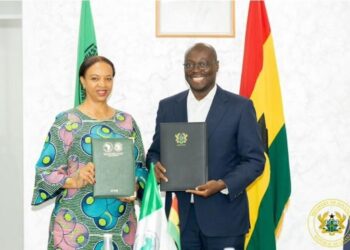In a lastest development, the Opposition National Democratic Congress (NDC) is intensifying its efforts to advocate for significant reforms, as outlined in their document titled “NDC Position Paper on Electoral Reforms.”
The key proposal from the party is the implementation of an all-year-round voter registration system, allowing individuals who turn 18 to register at any Electoral Commission (EC) district office. The document emphasizes the potential improvement in the polls’ credibility through this approach.
To mitigate potential costs, the NDC suggests that the EC conduct registrations once a month on the last Friday, providing an opportunity for party and candidate agents to monitor the process closely. The party envisions major positive implications if these proposals are accepted.
Additionally, the NDC is urging the EC to maintain the current voting time from 7 am to 5 pm, opposing calls for an earlier closing time. The party argues that the 10-hour window accommodates a diverse range of citizens, including those with work commitments, enhancing electoral participation.
Addressing concerns about military presence, the Opposition party proposes that the military should only be deployed as standby forces at vantage points, called in by the police when required. This, they argue, could reduce the potential for voter intimidation and undue influence, contributing to a fair and integrity-filled electoral process.
The NDC further insists on increased oversight by party agents and others during the collation process. The party advocates for regulations enabling agents to oversee the transmission of collated results at all stages and ends of the process. They stress the importance of public broadcast of the presidential vote collation process at the EC Head Office is to enhance transparency and minimize potential tampering.
Moreover, the NDC suggests the establishment of an Election Adjudication Committee (EAC) to review disputed results before the final declaration. The EAC, comprising EC officials, political party representatives, agents of independent candidates, and civil society organizations, should operate at both the national and constituency levels, the party contends.
































